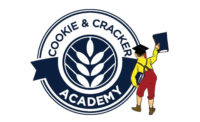Taking the time to train bakers early on can save your plant time and money by reducing the number of bad batches and instilling best practices. One of the ways to do this education is through in-person, customized training. The American Bakers Association (ABA) recently brought hands-on learning to a new bakery to help educate new and seasoned employees to cover the basics of baking. Here’s what happened.
The challenge. A large bakery was in the process of doubling capacity and adding 170 new employees. The bakery was looking to train these new employees quickly and cost-effectively.
The bakery’s needs:
- Train new employees on the fundamentals of baking and machinery
- Maintain high standards and processes
- Ensure the consistent quality of products
- Focus on processing opportunities to address fluctuation in dough consistency, which was resulting in packing complications
- Lessons needed to be customized with a hands-on approach to sustain knowledge learned
The solution. ABA enlisted two instructors to conduct classes over one work week. The in-person training complemented ABA’s online Cookie & Cracker Academy (CCA) “Entry Level Training Program” by adding hands-on applications with an instructor. Industry experts led the trainings and incorporated hands-on labs, lectures and technical discussions to ensure the students fully understood and retained the information. Two eight-hour classes were held each day during both the day and night shift. Each class met for eight hours on two consecutive days. This allowed four total groups—or 80 students—to attend the classes over two days.
Each class had at least two learning labs followed by an in-depth discussion on troubleshooting the inconsistencies that came up during the lab. For example, to illustrate the importance of order of operations, students were given directions for the ingredients and the desired weights, but not the specific mixing instructions. Doughs were then reviewed and analyzed for quality and consistency. Since no mixing procedures were given, the doughs turned out differently, perfectly showing the absolute necessity of following proper formula procedures.
By understanding the fundamentals of baking, new employees learned how to properly manufacture cookies and crackers while understanding how to correct mistakes. The class also walked the plant floor to discuss the equipment and their functions. This is where the attendees could bring the classroom lessons to life identifying and discussing each piece of equipment they learned about in the sessions.
To reinforce the on-site learning, each student—if they hadn’t taken it already—was enrolled in ABA’s online CCA “Entry Level Training Program” course and given six weeks to finish the course to demonstrate what they learned in the onsite training.
The results. A total of 80 employees went through the on-site training, supplying them with the fundamentals of baking. Employees worked together throughout the learning labs. They forged team bonds and communicated better across the shift. Since everyone—both longtime and new employees—received the same information, their training created a stronger workforce because of the shared knowledge.
The most-exciting result of the training was the enthusiasm the students soon took in their own learning. They applied their new knowledge immediately to situations in the bakery and brainstormed potential solutions. These students could now carry this message to other employees to help them better understand the process.
Some students began the class with much apprehension, with one even saying, “I do not want to be here, but I could not afford to take a day off.” At the first break, this same student stated to the entire group: “I am so glad I came here. I had no idea how much goes on in making our products.” At the end of the session, this employee turned to a new hire and said: “I see you have passion for this job. I am going to make you a baker.”
Thanks to this intensive training, more than half the staff received an in-depth training on ingredients, mixing, forming and baking, and were ready in one week to begin working.
Baking is a science and each employee needs to learn the basics. As new bakers enter the profession, the establishment of correct habits and skills is critical to success.




